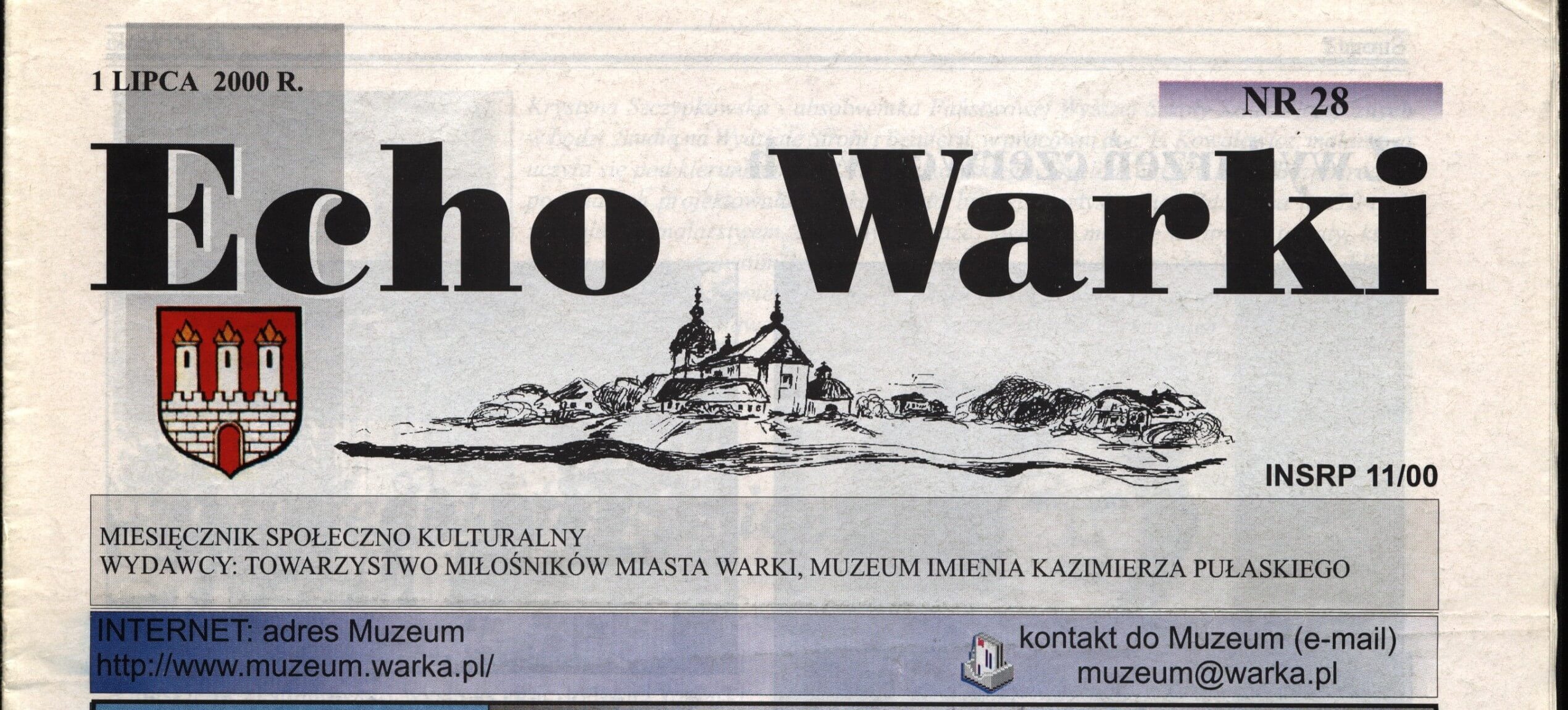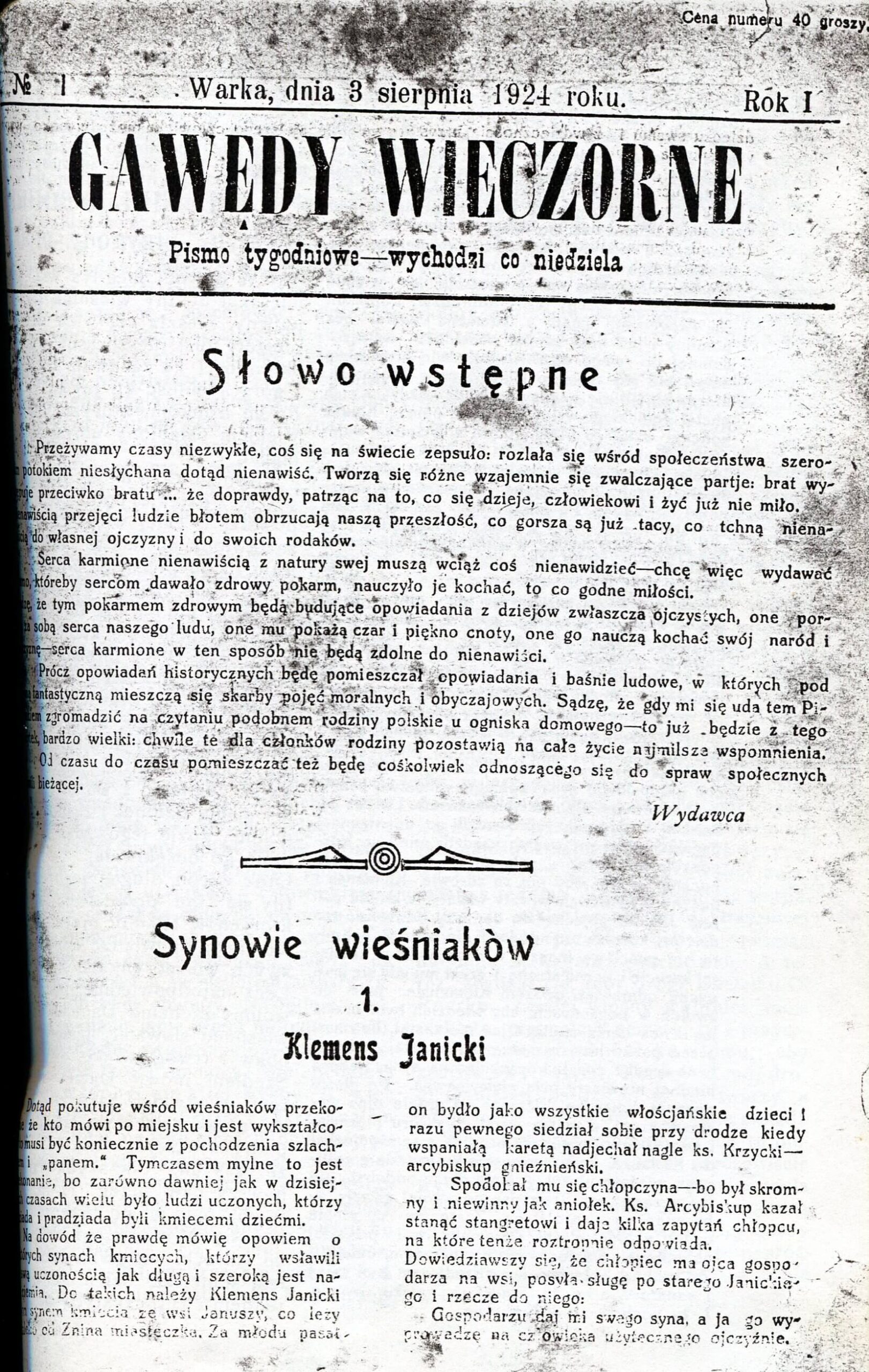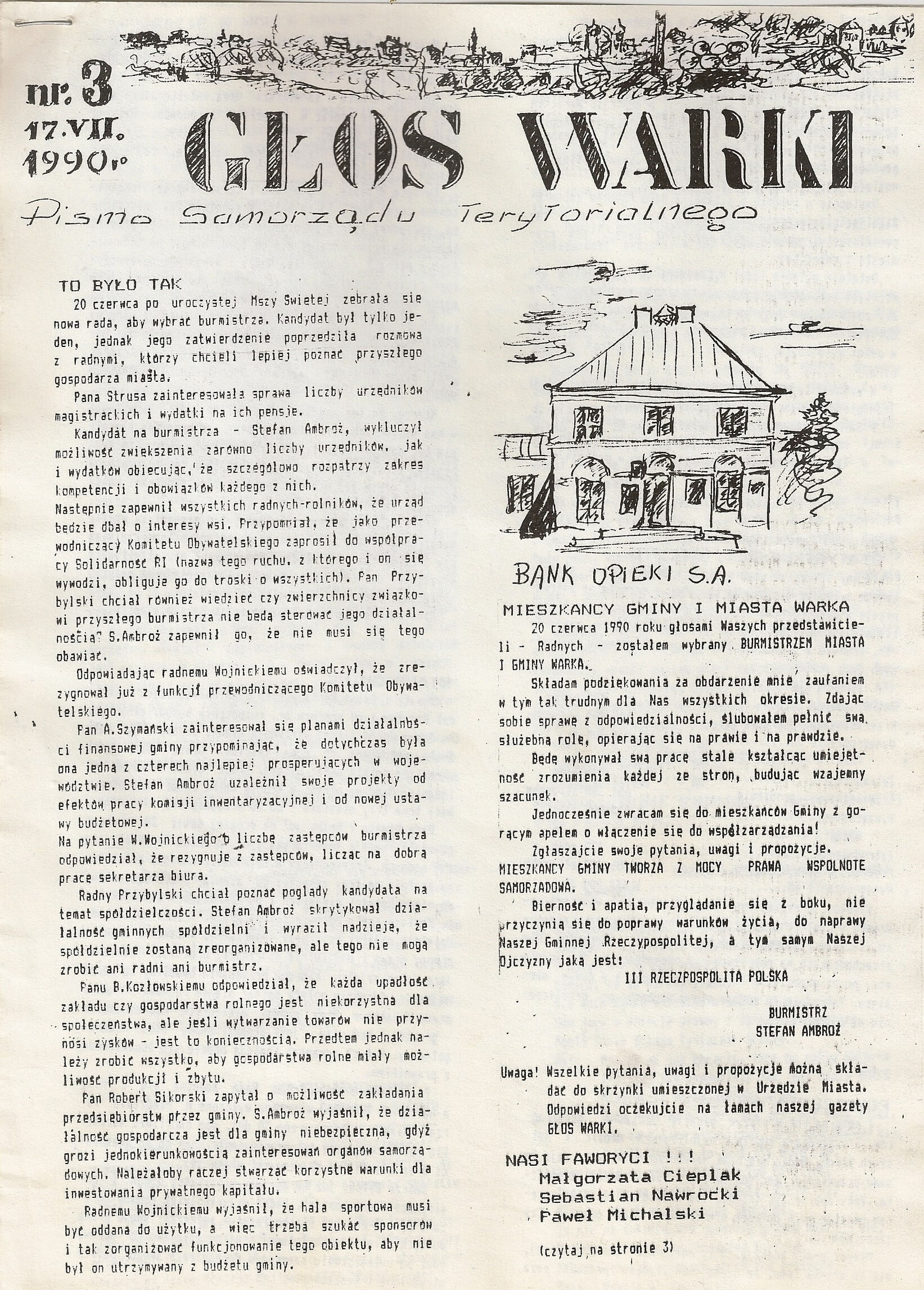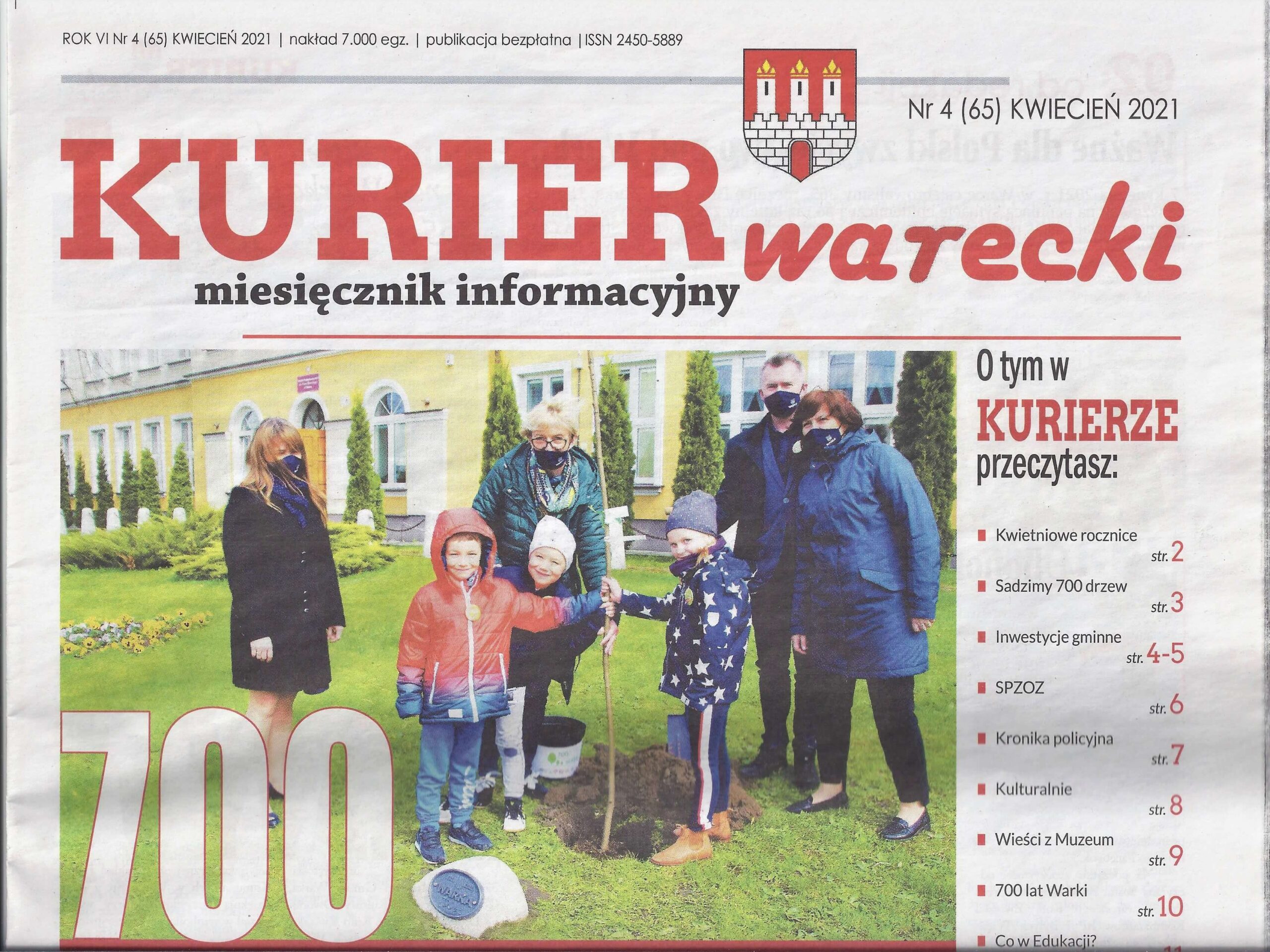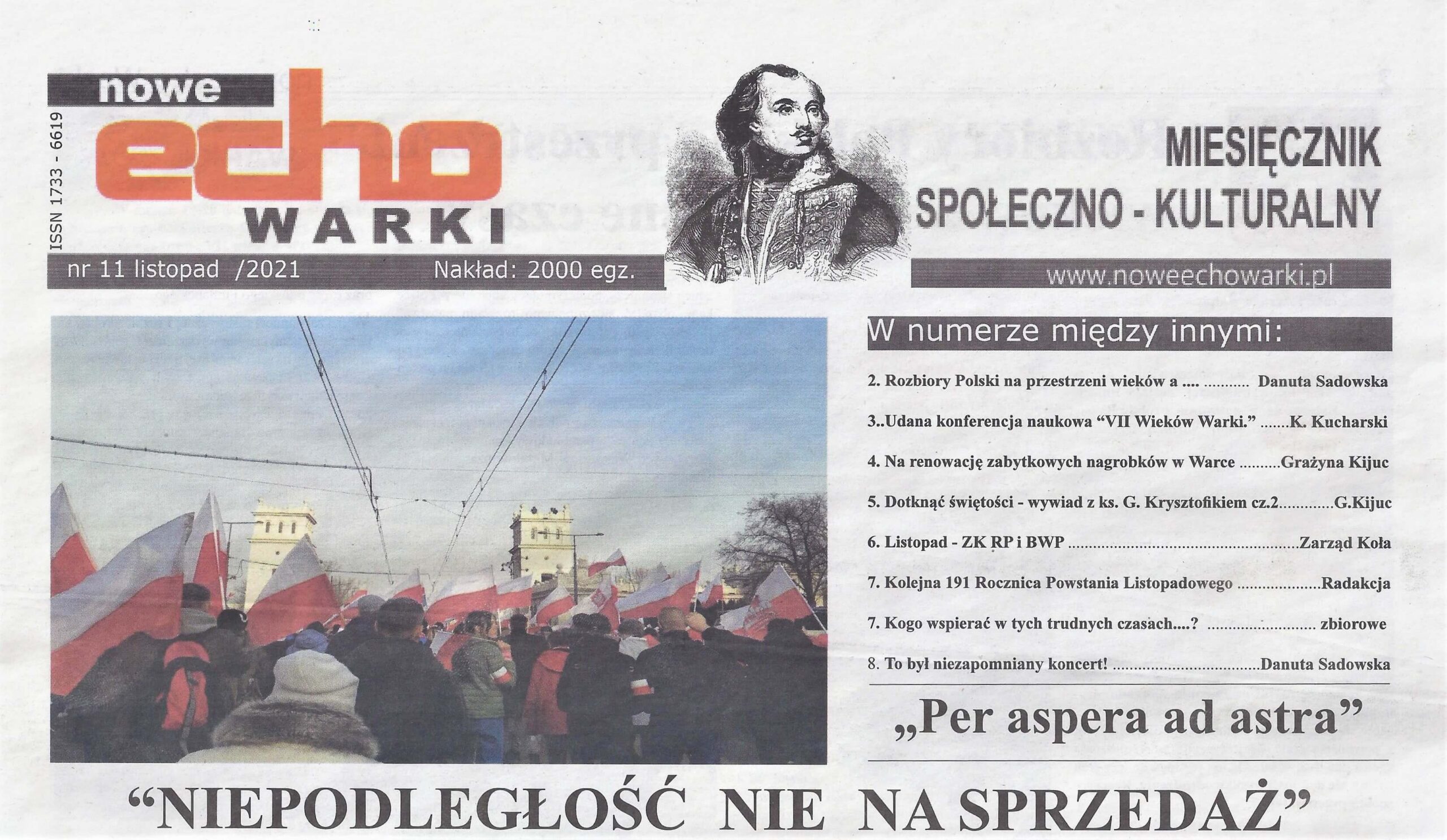
x
Local Press
“Warka Echo” (“Echo Warki”)
The monthly socio-cultural “Warka Echo” was published in the years 1998–2004 by the Casimir Pulaski Museum and Warka Town Boosters. The first issue came out on May 3, 1998, on the 207th anniversary of adopting the 3rd of May Constitution. The editor included a little present for the readers in form of a copy of a drawing by Zdzisława Gutkowska, depicting the “Worth-every-penny Inn” (“Karczma za ostatni grosz”), which used to serve the townspeople. The editor-in-chief was Museum Director Anna Kornatek, and the editorial section included Iwona Stefaniak, Leon Nawrocki, Andrzej Marek, and proof-reader Janusz Kreczmański. Later, the newspaper included articles by Krystyna Budzianowska, Maciej Kowalski, Jacek Matlakowski, Artur Siębor, Waldemar Tereszkiewicz, Andrzej Wojakowski, and Krzysztof Wieczorek. The newspaper described Warka’s current social and cultural matters, its history and historic sites, outstanding residents, natural beauty, and sustainable development. Its segments included: “Interview,” “Warka in old photographs,” “News from the Museum,” “From the parish records,” “Safe Town,” and “Familiar Atmosphere.”
“The New Warka Echo” (“Nowe Echo Warki”)
Director Anna Kornatek left the Casimir Pulaski Museum in 2004, and “Warka Echo” faced difficulties. In view of the above, the Casimir Pulaski Warka Town Boosters registered the newspaper under a new title. The editor-in-chief of “The New Warka Echo” was Maciej Dobrzyński; Zbigniew Kwiczak became deputy editor; and the editorial staff also included: Agnieszka Kalisz, Malwina Kałuża, Piotr Bieńkowski, and Witold Majewski. Since December 2012, the office of the editor-in-chief has been held by Danuta Sadowska, supported by deputy Grażyna Kijuc, and an editorial staff of Waldemar Tereszkiewicz, Malwina Kałuża, and Zbigniew Kwiczak.
“Evening Stories” (“Gawędy Wieczorne”)
The first Warka local newspaper was published by Fr. Marceli Ciemniewski, who was also its editor, and nota bene author of almost all articles, which he would sign with various pseudonyms. The weekly newspaper was distributed each Sunday in the years 1924–1926. Inside, one would find stories and folk tales showing the nation’s past and teaching to love God and the homeland as well as articles on current matters, which would expose social problems, most notably intemperance.
“Warka Voice” (“Głos Warki”)
The first issue of “Warka Voice”, which was the Citizens’ Committee’s newspaper, came out on May 19, 1990, one day before local government elections. It was edited by Anna Kornatek and Andrzej Tudrej, and proof-read by Tomasz Dymek, Marek Iwański, Leszek Owczarczyk, Robert Sikorski, and Waldemar Tereszkiewicz. The second issue was published on June 26, 1990, after the elections. The editorial section included: Stefan Ambroż, Stefan Posoch, Wojciech Wojakowski, Andrzej Tudrej, and its proof-readers were Marek Iwański and Grzegorz Błażejak. Starting with its third issue, dated July 17, 1990, “Warka Voice” became a newspaper of the local government, and its writing staff was constantly changing. The seventh and last issue came out on December 4, 1990. The newspaper was composed on a computer and copied on a duplicating machine. The articles, often written by Jacek Matlakowski, touched on contemporary issues of the town and region, as well as its history and figures connected with Warka.
“Warka Courier” (“Kurier Warecki”)
A free monthly news magazine published in the Warka municipality. The first issue came out in 2016. Its editor-in-chief is Andrzej Zaręba, and the editorial staff includes: Małgorzata Dąbrowska, Kamila Gostkowska, Grażyna Jagiełło, and Artur Dąbrowski. “Warka Courier” is published by the Municipal Cultural Institution “Manor at Długa Street,” which has partnered up with the Sports and Recreation Center for the endeavor. The magazine comments on current issues happening in Warka and its environs and encompasses all walks of life from culture, history, regular events, and anniversaries through current affairs and investments to sporting events. It is published in 7,000 copies.
